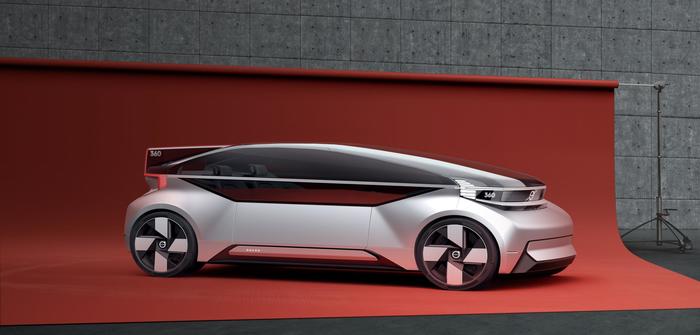Volvo Cars has presented an electric driverless car concept, the 360c. The vehicle re-imagines what cars could offer people if they no longer had to drive it themselves.
The interior of the 360c shows how AVs could offer an alternative to domestic air travel, as it can serve as a sleeping cabin, a mobile office, a living room and an entertainment space.
“Domestic air travel sounds great when you buy your ticket, but it really isn’t. The 360c represents what could be a whole new take on the industry,” said Mårten Levenstam, senior vice president of corporate strategy at Volvo Cars.
“The sleeping cabin allows you to enjoy premium comfort and peaceful travel through the night and wake up refreshed at your destination. It could enable us to compete with the world’s leading aircraft makers.”
“People becoming less reliant on proximity to cities is just one example of the impact of removing the burden of unproductive travel time. The 360c driving office makes it viable for people to live at greater distances from crowded cities and use their time both in a more pleasant and more effective way.”
The concept also addresses the issue of AVs communicating with other road users in the absence of eye contact with the driver. The 360c therefore has a system of external sounds, colors, visuals and movements, as well as combinations of these tools, to communicate the vehicle’s intentions to other road users.
“We strongly believe this communication method should be a universal standard, so all road users can communicate easily with any autonomous car, regardless of which maker built it,” said Malin Ekholm, VP at the Volvo Cars Safety Centre.
“But it is also important that we do not instruct others what to do next, in order to avoid potential confusion. Our research shows this is the safest way for fully autonomous cars to communicate with other road users.”
By Illya Verpraet


